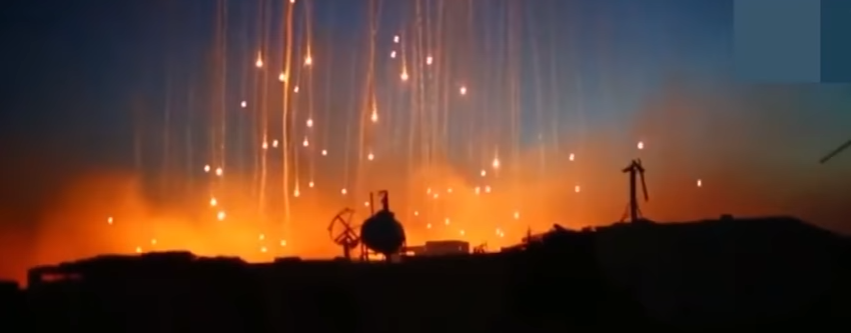“The U.S. and U.S.-backed forces are using tactics that are virtually guaranteed to raise enormous levels of casualties,” in the war in Syria, IPS Middle East expert Phyllis Bennis told The Real News Network.
In an effort to drive out ISIS from the heavily-populated—somewhere up to 200,000 civilians—city of Raqqa, the U.S. is resorting to tactics that will make what the UN already called a “staggering loss of life” worse.
Especially adding to the toll is the use of white phosphorus within the area. An incendiary and toxic chemical substance that can burn through skin and bone and penetrate internal organs, white phosphorus has no antidote.
The use of white phosphorus, Bennis says, is not always officially a war crime.
“But the conditions under which it’s not are very, very narrow,” she said.
The only time white phosphorus is legal to use is if it’s designed to cover troops in the battlefield, Bennis says. In that situation, troops would be protected from the toxic chemical with speical gear or inside a tank or armored personnel carrier.
The U.S. admitted to using white phosphorus to provide cover of civilians who might try to flee.
There has been a lack of press coverage dedicated to U.S. use of chemical weapons, including white phosphorous—especially serious when considering the international outcry months ago when Syrian President Bashar al-Assad was accused of using chemical weapons in Aleppo.
There is also a lack of press focus on the escalating civilian casualties caused by U.S. airstrikes in and around Raqqa. “It was absolutely appropriate to have massive coverage of the slaughter that went on for weeks in Aleppo, carried out predominately by the Syrian regime, by Iran, and by Russian airstrikes,’ Bennis said.” That kind of massive coverage is absolutely what’s needed right now.”
But in Raqqa, where there are similar numbers of casualties—maybe even greater numbers—and more to come, “We’re not seeing the same level of coverage when it’s carried about by the U.S. and U.S. allies.”
“This is one of those classic examples that the deaths of innocents are far more important to cover in the mainstream U.S. press when those responsible for the deaths of innocents are our so-called enemies, rather than ourselves or our so-called friends,” Bennis said.
…
